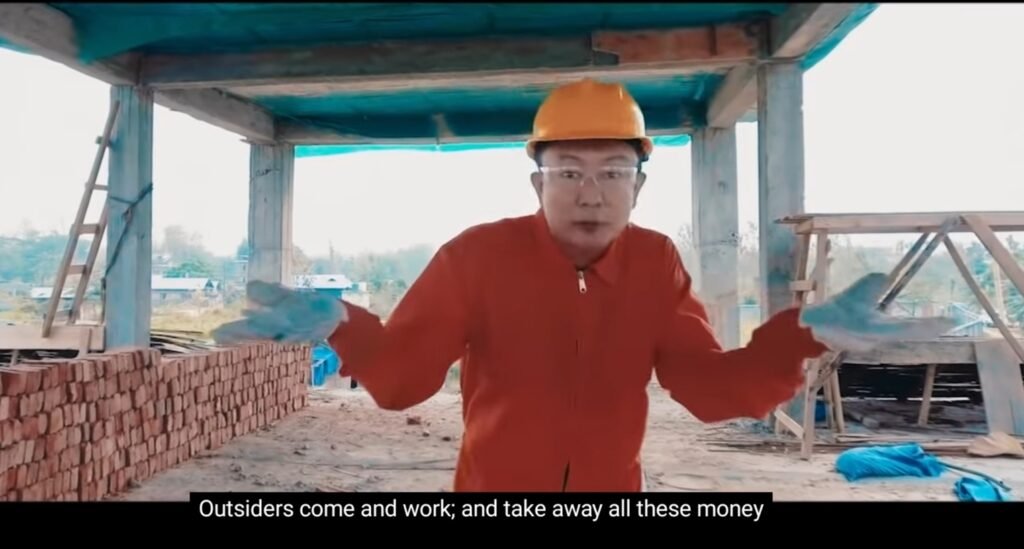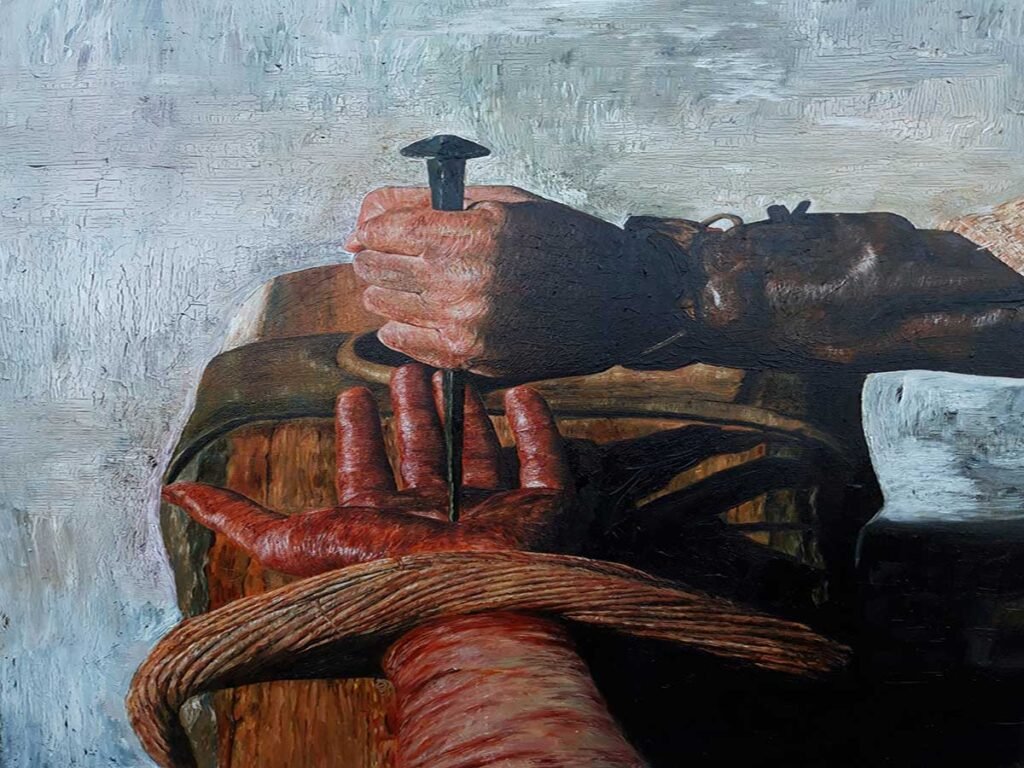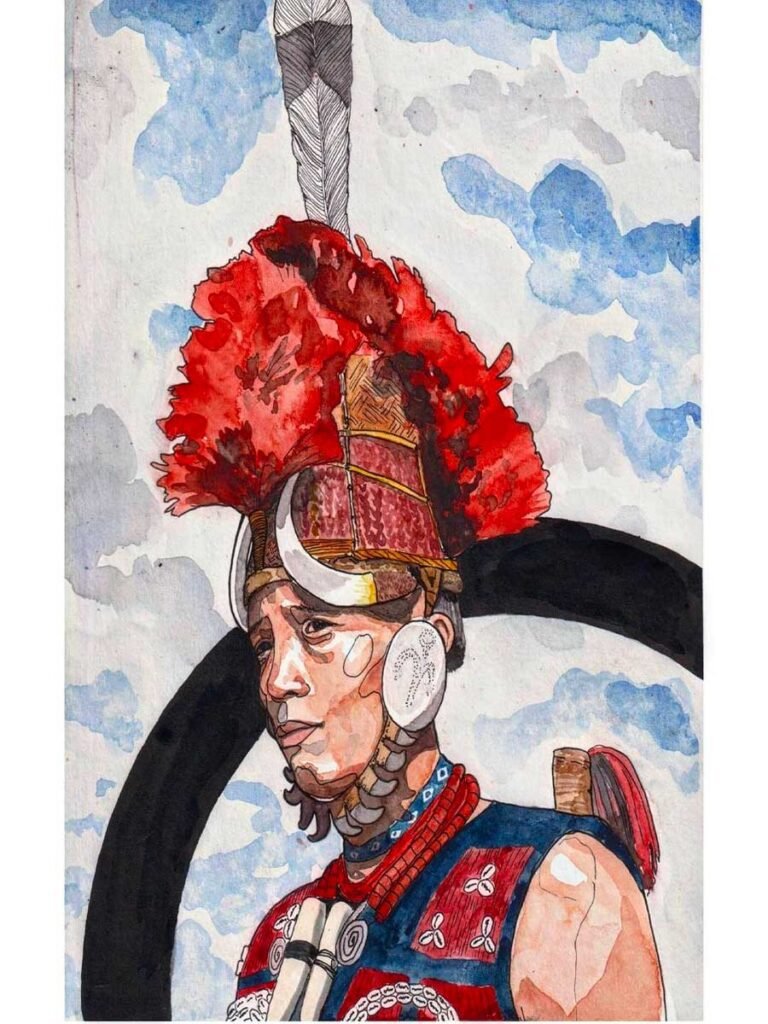Alobo Naga, born 1984 is a singer, songwriter, composer and producer from the enchanting Naga Hills and is basically a household name. Alobo formed the band ‘Alobo Naga & the band in 2011 and has won several awards for their hit video single Painted Dreams. The award winning artist is active as a solo artist and is as popular as ever and hosts the show ‘The Alobo Naga Show’ on the video platform Youtube.
Since the launch of his career as a musician, the Painted Dreams singer does not shy away from highlighting socio-political issues and is deeply involved in charitable works.
Mistry Gaana featuring Moto, released in 2017 is a song that addresses social issues and rightfully promotes Dignity of labour. It is the singer’s first Nagamese song and was released on account of World Labour Day. ‘Mistry Gaana’ also mean ‘The construction worker’s song’.
The ‘Mistry Gaana’ music video is helmed by director Tiakumzuk and features Dreamz Unlimited and currently, the music video has a whooping 1.7 million views on youtube at the time of writing. Even if ‘Mistry Gaana’ is already six-years old, it is a timeless masterpiece that delivers a potent and impactful message that remains relevant to this day. The song will carry on the powerful message and continue the legacy even in the days to come.
Why a revisit to ‘Mistry Gaana’?
In the contemporary landscape, it is of paramount importance to engage with the predicament of burgeoning youth unemployment. Prejudice against blue-collar jobs continues to be rampant in the society and it has reached such proportions that it has become imperative to squarely confront this issue. Amid this framework, the intricate interplay between the noble concept of ‘Dignity of labour’ and the pressing concern of youth unemployment emerges as a compelling nexus worthy of discerning examination.
Here’s why the song deserves a revisit-
- Timeless themes
Mistry Gaana’s themes combating prejudice and advocating for the dignity of labour are relevant across generations, making it worth revisiting to draw parallels with contemporary society.
“every family members talk about civil service exams
Villagers think if it’s not a government job, it’s useless
But if everyone becomes a government employee
Who will build your house?”
We need the message more than yesterday as we inhabit a society that normalized the act of weighing private sector employment or self employment against government positions, often subjecting those who do not hold government roles to unwarranted criticisms. Some individuals perceive a smaller Government jobs as having greater value than a managerial position within a private enterprise.
Certainly, not undermining smaller jobs because the intention is not to battle smaller jobs, as the promotion of dignity of labor is a priority. However, it is evident that the prevailing understanding has taken a skewed turn. It’s unfortunate that the perception often becomes distorted, valuing government positions despite promoting the dignity of all forms of labor.
- Social Reflection
The song liberates the society as a whole and allows us to reflect on how far society has progressed in overcoming biases against blue collar jobs and whether the message still resonates in today’s world.
“…from richest to the poorest, everyone needs each other in this world
Even a minister needs a mason to build his house”
Every creature in this blue planet depends on one another to complete the food chain just as much as we humans need each other for a prosperous society. The rich exists because of the poor, the educated exist because of the illiterate, the beauty because of the beast, innovation thrives on adversity, great leaders emerge from the struggles of the ordinary and the light of wisdom shines brighter against the canvas of ignorance.
No work is smaller than the other and should be valued without comparing their scale of importance.
- Inspiration for change
The song serves as a source of inspiration to drive change and challenge stereotypes, encouraging a more inclusive perspective on various form of work.
“I am the craftsman who builds your houses
I make use of God’s given hands and feet to feed myself
….I am the craftsman who builds your houses. I am happy today”
The lyrics speak volumes and did justice in promoting healthy mindset from a construction worker’s point of view. Sadness is frequently linked to poverty, and there’s a common tendency to assume that individuals engaged in manual labor lack alternative options in life, often leading to unwarranted expressions of sympathy. We have fallen short as a society in recognizing that certain individuals might derive greater satisfaction from engaging in manual works or being self employed rather than being confined to a traditional office environment. It is crucial to remember that each person is born with unique interests and talents.
Imagine if we allowed individuals to pursue and take pleasure in their innate strengths without interference, and if we abstained from imposing our own expectations upon them. Could this approach potentially help us mitigate youth unemployment, even if only to a certain extend?
Let us look around. Do you see the tailors, the cobblers, the auto drivers, the street vendors, the shopkeepers and so on? How many of them are locals?
Today, while our young people struggle to secure basic employment opportunities, outsiders have dominated the streets, benefitting from financial gains that could have been circulated within our own community.

- Advocacy on overcoming Cross-generational bias
In today’s landscape, where younger generations often find themselves held back by parental expectations, the song has the potential to serve as a catalyst for breaking age-based biases.
“Mom told me to study hard and become an officer
Dad wouldn’t settle for anything less than doctor or engineer”
Younger generations hold the key for change and can lead this charge by challenging traditional norms and embracing their passions rather than adhering to conventional career paths imposed by their parents’ generation. This advocacy rooted in both personal empowerment and social change paves the way for a more inclusive and enlightened society that truly values the dignity of labor across generations.
Earn, don’t spurn because every job’s a turn!
Sharing is caring. You know what to do!




